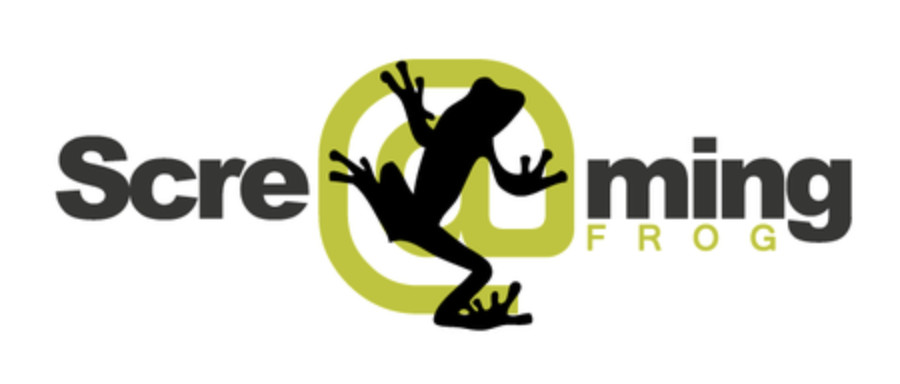
Back to hub
Blog
Marketing
9 best SEO Audit Tools: Comprehensive Guide to Boosting your Website's Performance
Published on May 26, 2025Updated on Aug 5, 2025
Picture this: You're driving a car with a blindfold on. Sounds terrifying, right? That's essentially what running a website without regular SEO audits feels like. You're moving forward, but you have no idea if you're heading toward success or straight into a digital brick wall.In today's hyper-competitive online landscape, anyone who's trying to rank should be running regular site audits to evaluate how well-optimized your website currently is and identify areas where you can improve. Whether you're a digital marketing agency, a B2B company scaling your outreach, or a solo entrepreneur building your online presence, having the right SEO audit tools in your arsenal is like having a GPS for your digital journey.
What Are SEO Audit Tools and Why Do You Need Them?
Before we dive into our carefully curated list of the 9 best SEO audit tools for 2025, let's establish what these digital detectives actually do.An SEO monitoring tool helps agencies catch ranking drops before they impact revenue. Instead of manually checking performance, it centralizes real-time SEO data—saving agencies hours of work. Think of SEO audit tools as your website's personal physicians – they run comprehensive checkups, diagnose problems, and prescribe solutions to keep your site healthy and performing at its peak.
The Hidden Costs of Skipping SEO Audits
Here's a sobering statistic that might keep you up at night: an analysis of 200+ million webpages found the average site has over 4,500 crawl-detected SEO issues impairing its search visibility, with 29% of pages having duplicate content problems and 34% of pages missing meta descriptions. That's like having thousands of tiny leaks in your roof – individually, they seem manageable, but collectively, they can cause serious damage.
Technical SEO vs. Content Audits: Understanding the Difference
Not all audits are created equal. Understanding the distinction between different types of audits is crucial for choosing the right tool for your needs.
Technical SEO Audits: The Foundation
A technical audit focuses on the nuts and bolts: site speed, code errors, and SEO structure. These audits examine:
Site architecture and crawlability
Page speed and Core Web Vitals
Mobile responsiveness
XML sitemaps and robots.txt files
Broken links and redirect chains
Duplicate content issues
Content Audits: The User Experience Layer
A full website audit is a complete workup—content, user experience, branding, and beyond. Content audits focus on:
Keyword optimization and content quality
Meta descriptions and title tags
Content freshness and relevance
User engagement metrics
Content gaps and opportunities
The 9 Best SEO Audit Tools for 2025
Now, let's roll up our sleeves and explore the tools that will transform your SEO strategy from guesswork into a data-driven powerhouse.
1. SE Ranking - The Swiss Army Knife of SEO Audits

Best for: Agencies and businesses seeking comprehensive SEO management SE Ranking is the best choice for most users thanks to its diverse features and affordable pricing, making it the top pick for the overall best SEO audit tool.Key Features:
Complete site auditing with health scoring
White-label reporting for agencies
Keyword tracking and competitor analysis
AI-powered content optimization
Local SEO tracking
Pricing: SE Ranking offers three pricing plans with a 14-day free trial: Essential for $65 per month, audit up to five projects Why We Love It: It's flexible, comprehensive, and presents its audit results in easy-to-digest reports. Plus, it's fantastic value for money as you get a ton of features at an affordable price point.Pro Tip for B2B companies: SE Ranking's white-label reports are perfect for creating professional audit presentations for potential clients. If you're running outreach campaigns through platforms like Emelia.io, these polished reports can significantly improve your conversion rates when prospecting new business.
2. Semrush Site Audit - The Industry Standard

Best for: Enterprise-level SEO management and comprehensive analysis Semrush consistently ranks as the top-rated SEO tool for driving traffic, due to its robust research, competitor analysis, and site audit features. Its free version offers valuable insights for small businesses and marketers looking to scale organically in 2025.
Key Features:
150+ audit checks across multiple categories
Core Web Vitals monitoring
Competitive analysis integration
Social media and PPC management
API access for custom integrations
Pricing: Plans start from $119/month with a free trial availableThe Semrush Advantage: The Site Audit tool is one of Semrush's core offerings in its all-in-one digital marketing platform. Along with keyword research, keyword clustering, backlink analysis and more, Semrush offers one of the most usable website SEO audit tools that you can dream of.
3. Screaming Frog SEO Spider - The Technical Deep-Dive Champion

Best for: Technical SEO specialists and detailed website analysis Screaming Frog SEO Spider is a super reliable desktop crawler and a beloved tool by SEOs. I've been using it for so many years that I can't even remember when I started.
Key Features:
Desktop application for unlimited control
Custom extraction and API integrations
Log file analysis
JavaScript rendering capabilities
Flexible crawl configurations
Pricing: Screaming Frog SEO Spider is free for up to 500 URLs. If you want to crawl more, you can upgrade to the paid plan, which starts at $259 per year per license
Why Technical SEOs Swear By It: Screaming Frog's beauty is simulating how search engine bots crawl your site. It can show issues with broken links, duplicate content, metadata, redirects, and internal linking.
4. Ahrefs Site Audit - The Link Building Powerhouse

Best for: Comprehensive SEO analysis with strong backlink focus Ahrefs is a top recommendation for mid-size businesses in 2025. It offers powerful features like backlink tracking, site audits, and content gap analysis. Its user-friendly interface and scalable insights make it ideal for growing teams focused on long-term SEO success.
Key Features:
Site health monitoring with priority scoring
Backlink analysis and link building opportunities
Content gap analysis
Keyword research integration
SERP feature tracking
Pricing: You can use Ahrefs Site Audit for free, with up to 5,000 crawl credits per project per month. However, if you need to crawl more pages and access Ahrefs' premium tools, you have the option to upgrade to their paid plans
5. Google Search Console - The Free Foundation

Best for: Budget-conscious website owners and basic SEO monitoring Google Search Console is one of the best free SEO auditing tools out there. It's made by Google to help website owners and SEO professionals identify and fix issues that might be negatively impacting their search presence.
Key Features:
Performance tracking with click and impression data
Index coverage reports
Core Web Vitals monitoring
Mobile usability testing
Security issues detection
Pricing: Completely freeThe Google Advantage: Since it comes directly from Google, you're getting insights straight from the horse's mouth about how Google sees your website.
6. Sitebulb - The Visual SEO Detective

Best for: Visual learners and agencies needing detailed client reportsIt has interactive reports, charts, and heatmaps. These tools help you analyze technical SEO data more easily. Because Sitebulb has cloud server plans (starting at $245 per month), it's a scalable option for large teams and enterprise SEO site audits.
Key Features:
Interactive visual reports with charts and graphs
Hint system for actionable recommendations
URL mapping and site architecture visualization
Client-ready reports
Team collaboration features
Pricing: Desktop version starts at $35/month, cloud plans from $245/month
7. Moz Pro - The Beginner-Friendly Option

Best for: SEO newcomers and small businesses Moz remains popular, particularly among newer SEO practitioners and small business teams. Its user-friendly interface and reputation for high-quality educational content make it a strong starting point. Moz offers keyword tracking, a well-known Domain Authority metric, backlink analysis, and technical site audits.
Key Features:
Domain Authority metrics
Page optimization recommendations
Keyword tracking and research
Link building tools
Educational resources and community
Pricing: At $39/month, it strikes a great balance between usability and power, making it ideal for content-driven SEO strategies
8. Ubersuggest - The Budget-Friendly Powerhouse

Best for: Small businesses and individual marketers on a tight budgetIntroduced by Neil Patel, Ubersuggest has earned its place as a popular free alternative to paid platforms. Its free plan has daily search limits, but it can handle the basics of SEO audits and keyword tracking.Key Features:
Site audit with actionable recommendations
Keyword research and content ideas
Competitor analysis
Backlink tracking
Chrome extension for quick insights
Pricing: Free version available, paid plans from $29/month
9. SEOptimer - The Quick Health Check Specialist

Best for: Quick audits and white-label reporting SEOptimer is a free SEO Audit Tool that will perform a detailed SEO Analysis across 100 website data points, and provide clear and actionable recommendations for steps you can take to improve your online presence and ultimately rank better in Search Engine Results. SEOptimer is ideal for website owners, website designers and digital agencies who want to improve their own sites or theirs of their clients.
Key Features:
100+ SEO checks in seconds
White-label reports for agencies
Embeddable audit tools for websites
PDF report generation
Multi-language support
Pricing: Free basic audits, premium plans from $19/month
How to Choose the Right SEO Audit Tool for Your Needs
Selecting the perfect SEO audit tool is like choosing the right vehicle for a road trip – it depends on where you're going, how many people you're taking, and what your budget looks like.
For Agencies and Consultants
If you're managing multiple clients and need white-label reporting, tools like SE Ranking, SEOptimer, and Sitebulb should top your list. These platforms allow you to brand reports with your company logo and colors, making you look like the professional SEO wizard your clients think you are.Agency Pro Tip: When conducting prospecting through email outreach (using tools like Emelia.io), offering a free SEO audit as a lead magnet can significantly boost your response rates. Tools like SEOptimer even allow you to embed audit forms directly on your website, turning visitors into qualified leads automatically.
For Enterprise Businesses
Large organizations need enterprise-grade solutions with robust API access, team collaboration features, and scalable crawling capabilities. Semrush, Ahrefs, and Conductor are built to handle the complexity and scale that enterprise SEO demands.
For Small Businesses and Solopreneurs
Budget constraints don't mean you have to sacrifice quality. Google Search Console (free), Ubersuggest (affordable), and Moz Pro (beginner-friendly) provide excellent value without breaking the bank.
For Technical SEO Specialists
If you live and breathe technical SEO, Screaming Frog and Sitebulb offer the depth and customization options you crave. These tools provide granular control over crawling parameters and detailed technical insights.
Advanced SEO Audit Strategies for 2025
The Layered Audit Approach
Don't put all your eggs in one basket. Cross-check with multiple tools. If one platform runs out of queries, switch to another. This also provides a more balanced view.Layer 1: Foundation Check (Google Search Console)
Index coverage issues
Core Web Vitals problems
Security concerns
Layer 2: Technical Deep Dive (Screaming Frog or Sitebulb)
Crawl error analysis
Internal linking structure
Redirect chains
Layer 3: Competitive Analysis (Semrush or Ahrefs)
Content gap identification
Backlink opportunities
SERP feature optimization
The Mobile-First Audit Strategy
Just under 55% of all global traffic is on mobile devices. Google started using their mobile-first indexing process a while ago and completed the roll-out process in 2023. This means that Google now uses the mobile version of your site for indexing and ranking in mobile AND desktop search results.Mobile Audit Checklist:
✅ Responsive design functionality
✅ Touch-friendly navigation elements
✅ Page speed on mobile devices
✅ Content accessibility without zooming
✅ Local search optimization
The Content-Commerce Connection
For B2B companies running outreach campaigns, your SEO audit should align with your sales and marketing objectives. When prospecting through platforms like Emelia.io, having a technically sound, fast-loading website with optimized content can significantly improve your email-to-meeting conversion rates.
Common SEO Audit Mistakes to Avoid
Mistake #1: The "Set It and Forget It" Mentality
Regular audits help identify new opportunities and address any emerging issues promptly. Your website isn't a vintage wine that gets better with age if left alone – it needs constant attention and optimization.
Mistake #2: Focusing Only on Technical Issues
While technical SEO is crucial, technical SEO focuses on fixing issues that prevent search engines from crawling or indexing the website properly. As a result, technical SEO audits generally come before content or backlink audits. Don't neglect content quality, user experience, and off-page factors.
Mistake #3: Overwhelming Yourself with Data
While you may get unlimited information from a thorough SEO audit, you need to prioritize the elements that matter the most to your SEO strategy. Focusing on these vital metrics can be a good place to start.Priority Framework:
Critical Issues (site crashes, major indexing problems)
High-Impact Opportunities (low-hanging fruit with big potential)
Long-term Improvements (content strategy, link building)
Mistake #4: Ignoring the Human Element
Tools are fantastic, but what you shouldn't do however, is rely on tools alone. The best SEO audits combine data-driven insights with human intuition and industry expertise.
Free vs. Paid SEO Audit Tools: Making the Right Investment
When Free Tools Are Sufficient
Many times, the free versions give enough direction for small to medium-sized websites. Only if you're dealing with large enterprise sites might you need advanced crawling features and higher data allowances from paid tools.Free Tools Are Perfect For:
Small websites (under 1,000 pages)
Basic technical issue identification
Initial SEO assessments
Budget-conscious small businesses
When You Need Premium Features
Invest in Paid Tools When:
Managing multiple client websites
Requiring white-label reporting
Needing advanced competitor analysis
Handling large enterprise sites
Requiring API access for integrations
The Future of SEO Audits: AI and Automation
The SEO audit landscape is evolving rapidly, with artificial intelligence and machine learning taking center stage. Many of the tools in this guide have some type of built-in AI functionality for SEO. But we found a few that stand out for their use of AI's ability to process huge amounts of data and generate SEO insights.
Emerging Trends for 2025:
1. AI-Powered Recommendations Tools are becoming smarter at providing contextual recommendations rather than just identifying problems.
2. Voice Search Optimization Audits As voice search grows, audits will need to assess conversational keyword optimization and featured snippet readiness
3. Core Web Vitals Evolution Google continues to refine user experience metrics, and audit tools are adapting to track these evolving signals
4. Integration with CRM and Marketing Platforms For B2B companies using outreach tools like Emelia.io, SEO audit tools are beginning to integrate with sales and marketing platforms to provide holistic performance insights.
Building Your SEO Audit Action Plan
Step 1: Establish Your Baseline
Before diving into optimizations, understand where you currently stand:
Organic traffic trends
Keyword ranking positions
Core Web Vitals scores
Conversion rate metrics
Step 2: Create Your Audit Schedule
Monthly Quick Checks:
Google Search Console review
Core Web Vitals monitoring
Security and uptime status
Quarterly Deep Dives:
Full technical audit
Content performance analysis
Competitive landscape review
Annual Comprehensive Reviews:
Complete site architecture assessment
SEO strategy realignment
Tool stack evaluation
Step 3: Implement and Monitor
Performing an SEO audit gives you lots of data to understand where your website is positioned within your industry. But to see if your efforts to take action on that data are effective, you need a way to track your progress. Enter: keyword rank tracking.
Conclusion: Your SEO Audit Journey Starts Now
Choosing the right SEO audit tool isn't just about picking the one with the most features or the lowest price – it's about finding the perfect match for your specific needs, budget, and technical expertise.Whether you're a digital marketing agency scaling your client base, a B2B company optimizing your outreach efforts, or an entrepreneur building your online presence, the tools we've covered in this guide provide the foundation for data-driven SEO success.Remember, the best SEO audit tool is the one you'll actually use consistently. Start with the tools that fit your current situation, and don't be afraid to evolve your toolkit as your needs grow and change.The digital landscape waits for no one, and your competitors are already optimizing their sites while you're reading this. Frequently Asked Questions About SEO Audit Tools

Q: How often should I run SEO audits?
A: The frequency depends on your website's size and activity level. For most businesses, a monthly quick check and quarterly comprehensive audit provide the right balance between staying informed and not overwhelming your team with data.
Q: Can I use multiple SEO audit tools together?
A: Absolutely! In fact, it's recommended. Honestly, I find myself going back and forth between these two tools from time to time. For in-depth site auditing, they're both great options. Different tools excel in different areas, so using a combination can provide more comprehensive insights.
Q: What's the most important metric to focus on first?
A: Start with indexability issues and Core Web Vitals. If Google can't crawl your site or if it loads too slowly, other optimizations won't matter much. Fix the foundation first, then build up.
Q: Do I need technical knowledge to use these tools?
A: It depends on the tool. Moz Pro and Ubersuggest are designed for beginners, while Screaming Frog requires more technical expertise. Choose tools that match your current skill level and consider investing in SEO education as your needs grow.
Q: How do SEO audits impact my outreach and sales efforts?
A: A well-optimized website significantly improves your credibility and conversion rates. When prospects visit your site after receiving outreach emails (whether through Emelia.io or other platforms), a fast, professional, and well-optimized site creates a positive first impression that can dramatically improve your email-to-meeting conversion rates.
Q: What's the ROI of investing in premium SEO audit tools?
A: The ROI varies based on your business size and SEO strategy complexity. For agencies managing multiple clients, premium tools with white-label reporting can justify their cost through improved efficiency and professional presentation. For small businesses, start with free tools and upgrade as your needs and budget grow.
Q: Can SEO audit tools help with local SEO?
A: Yes! Many modern audit tools include local SEO features like NAP (Name, Address, Phone) consistency checks, Google My Business optimization insights, and local search ranking monitoring.
Q: Should I audit my competitors' websites too?
A: Absolutely! Backlink and competitive analysis tools help agencies track competitor keyword rankings and backlink growth, and spot SEO opportunities that competitors may have missed. Understanding your competitive landscape is crucial for identifying opportunities and staying ahead.

Clear, transparent prices without hidden fees
No commitment, prices to help you increase your prospecting.
Credits(optional)
You don't need credits if you just want to send emails or do actions on LinkedIn
May use it for :
Find Emails
AI Action
Phone Finder
Verify Emails
€19per month
1,000
5,000
10,000
50,000
100,000
1,000 Emails found
1,000 AI Actions
20 Number
4,000 Verify
€19per month
Discover other articles that might interest you !
See all articlesB2B Prospecting
Published on Jun 26, 2025
Clearbit vs Cognism: Common Features and Differences
 Niels Co-founder
Niels Co-founderRead more
B2B Prospecting
Published on Jun 30, 2025
Zopto vs Waalaxy: Comparison of LinkedIn automation tools
 Niels Co-founder
Niels Co-founderRead more
Software
Published on Jun 24, 2025
PhantomBuster vs Waalaxy: B2B Automation to Dominate Prospecting in 2025
 Niels Co-founder
Niels Co-founderRead more
Software
Published on Jul 6, 2025
Kaspr vs ZoomInfo vs Emelia: Who Will Dominate B2B Prospecting in 2025?
 Niels Co-founder
Niels Co-founderRead more
Software
Published on Jun 30, 2025
Snov.io vs Waalaxy Comparison For B2B Prospecting
 Mathieu Co-founder
Mathieu Co-founderRead more
Software
Published on Jun 30, 2025
Salesflow vs Waalaxy: The Ultimate Battle of 2025
 Niels Co-founder
Niels Co-founderRead more
Made with ❤ for Growth Marketers by Growth Marketers
Copyright © 2026 Emelia All Rights Reserved
